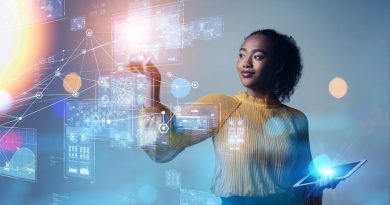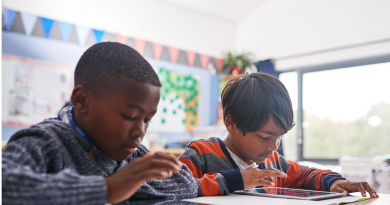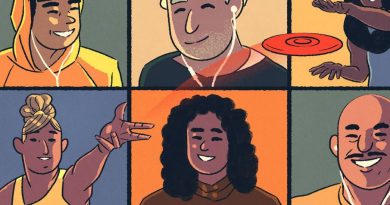Guest column: Remote learning could shape the way we educate future generations
Since World War II, our society hasn’t experienced an instance where countries across the world have locked down educational institutions at the same time and for the same purpose. It is fair to assume that the COVID-19 crisis will completely alter our global outlook, as the impact of the virus is far-reaching.
As educators, we’re asking ourselves: What does this mean for the future of education? In my eyes, this disruption to our norm is a chance for us to rethink and reframe our approach.
Over the past three months, we’ve all had to uproot our lives, modifying our schedules and routines to fit into a life at home. To our surprise, our Gestalt Community Schools team found that remote learning has delivered results no one expected. Though challenging, our dedicated and talented leadership team established a carefully crafted, relationship-focused plan of action, allowing us to replace uncertainty with opportunity.
Per our usual approach, relationships, and communication with our scholars, family, and staff members took precedence. We used call-a-thons and surveys to check in on our scholars and staff members’ mental and physical well-being. We then ventured into troubleshooting setbacks at home, such as food insecurity and internet connectivity issues.
Through ideas, innovation, and constructive feedback, we created a remote learning experience that would best accommodate our entire village. In turn, we have reaped benefits we will seek to retain well past the last days of lockdown.
Here are the top two takeaways we’ve gathered through our remote learning process:
Technology will continue to play a key role.
Even before the COVID-19 outbreak, our Power Center Academy schools used integrated technology tools to empower scholar and teacher productivity. Technology roots classrooms in the constructivist approach, which offers scholars the opportunity to design their own learning experiences. This did not change when we made the transition to remote learning.
When the outbreak began, Gestalt leveraged our existing one-to-one computing to push hundreds of laptops to our families and connecting many more to high-speed internet. While paper assignments were an option, we knew we could do more to educate our children.
Technology has revealed more opportunities for creativity and flexibility, which will inevitably impact our learning experience when we return to a brick-and-mortar educational environment.
The pandemic has led educational institutions across the world to harness and utilize the suite of available technological tools to create and expand learning opportunities.
Maintain a focus on a flexible learning model.
Our remote learning model was designed with parents in mind, as we recognized parents are not teachers. Our vision was to make the remote learning experience simple yet effective.
We used a combination of Zoom sessions (offered in both real-time and recordings), Schoology content, printed materials, and phone calls. Whether it was virtual or printed, we were pleased to find that our families engaged in both formats, giving them enhanced independence to choose the learning style that works best for them.
For example, we found that our high school scholars, especially juniors and seniors, were faced with challenges, such as providing supervision for a younger sibling while parents are working; working essential jobs in our local grocery stores; and providing necessary income for their families’ survival.
As a result, they needed more flexibility from real-time sessions via Zoom to self-paced learning through Schoology. We saw that this flexibility produced a high level of engagement and mastery. There was something real about them owning their learning and their pathway. We now see the need at the high school level to implement even more flexibility in how our scholars engage in the learning process.
Additionally, we were impacted by the opportunity to personalize our experience with our special populations — such as scholars with disabilities, English as a second language families, and our gifted scholars. On top of our normal, inclusionary lessons with general and special education teachers, we had more flexible time for one-to-one interventions.
One of our special needs scholars commented that, because they are able to engage at their pace with plenty of interventions, they are learning more. They don’t feel the stigma that sometimes special populations feel in a less inclusive environment.
Remote learning eased limitations and increased versatility. Through this flexible learning experience, we’ve seen our scholars truly own their learning. In fact, we’ve found that some scholars who weren’t as engaged are more engaged because of the ability to pace themselves and take control of their work.
In this ever-changing environment, scholars require resilience and adaptability — this model gives them just that. Our successes will assist us in further developing our future vision for providing solid instruction through virtual and in-person educational settings.
The COVID-19 crisis has taught us how education models should shift to better prepare our young learners for what the future holds. There are several inequities we face in the education sector. Because of what we’ve learned these past few months, Gestalt Community Schools has even more knowledge to continue filling those gaps, and we will continue to forge ahead in tackling out-of-school challenges that hinder our scholars from succeeding. Together, we can create a more equitable education system for future generations.
Source: https://www.bizjournals.com/memphis/news/2020/06/11/yetta-lewis-gestalt-community-schools.html?ana=smartbrief




